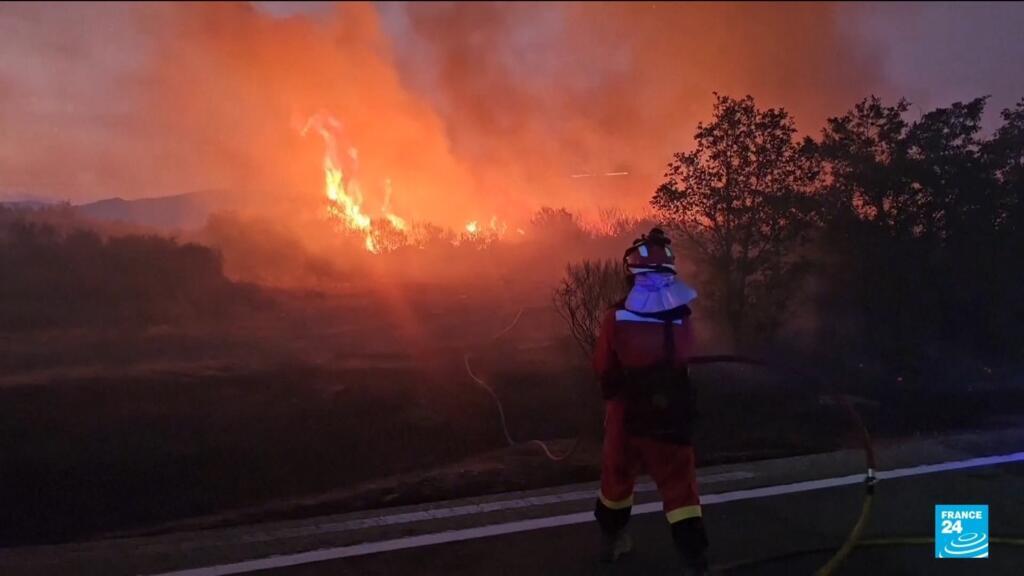Heatwave Intensifies in Spain as Firefighters Battle Persistent Blazes
As Spain enters its third week of a severe heatwave, the situation continues to worsen, prompting ongoing heatwave alerts across the nation. The effects of this prolonged heat are particularly acute in the northwest and western regions, where firefighters are actively engaged in combating wildfires that have sprung up due to the extreme temperatures.
Reports indicate that the firefighters are not alone in their efforts; the Spanish army has been deployed to assist in containing the blazes. This collaboration highlights the severity of the crisis as resources are mobilized from various sectors to tackle the escalating threat posed by the wildfires. The blazes, exacerbated by dry conditions and high temperatures, have posed significant risks to both human life and the environment.
Local authorities are working tirelessly to coordinate firefighting efforts, which include not only ground crews but also aerial firefighting units. These teams utilize helicopters and airplanes to drop water and fire retardants on particularly hard-to-reach areas. Despite these measures, the intense heat has made it challenging for crews to contain some of the more aggressive fires, which have spread rapidly across dry grasslands and forests.
The human toll has been significant, as evacuations have become necessary in several affected areas. Residents in regions most at risk have received notifications to vacate their homes, prioritizing safety amid the unpredictable spread of the flames. Emergency shelters have been established to accommodate those displaced by the evacuations, ensuring that individuals have access to basic needs during this challenging time.
The heatwave itself has been extreme, with temperatures soaring well above average for this time of year. Meteorological forecasts suggest that the heat is expected to persist, with no immediate relief in sight. As such, health officials have been actively warning the public about the dangers of heat-related illnesses. Citizens are advised to stay hydrated, avoid strenuous outdoor activities during peak hours, and seek shade whenever possible.
In addition to the immediate dangers of wildfires and heat-related health issues, experts have raised concerns about the longer-term impacts of climate change in Spain. This current heatwave is seen as part of a troubling trend, with scientists linking such extreme weather events to the wider effects of global warming. The increase in frequency and severity of heatwaves poses ongoing challenges for firefighting resources and emergency management protocols throughout the country.
Looking ahead, it will be crucial for both local and national authorities to evaluate the effectiveness of their response strategies in dealing with wildfires and other climate-related emergencies. Lessons learned from this event could inform future policies and resource management in an effort to better prepare for similar incidents in the years to come.












